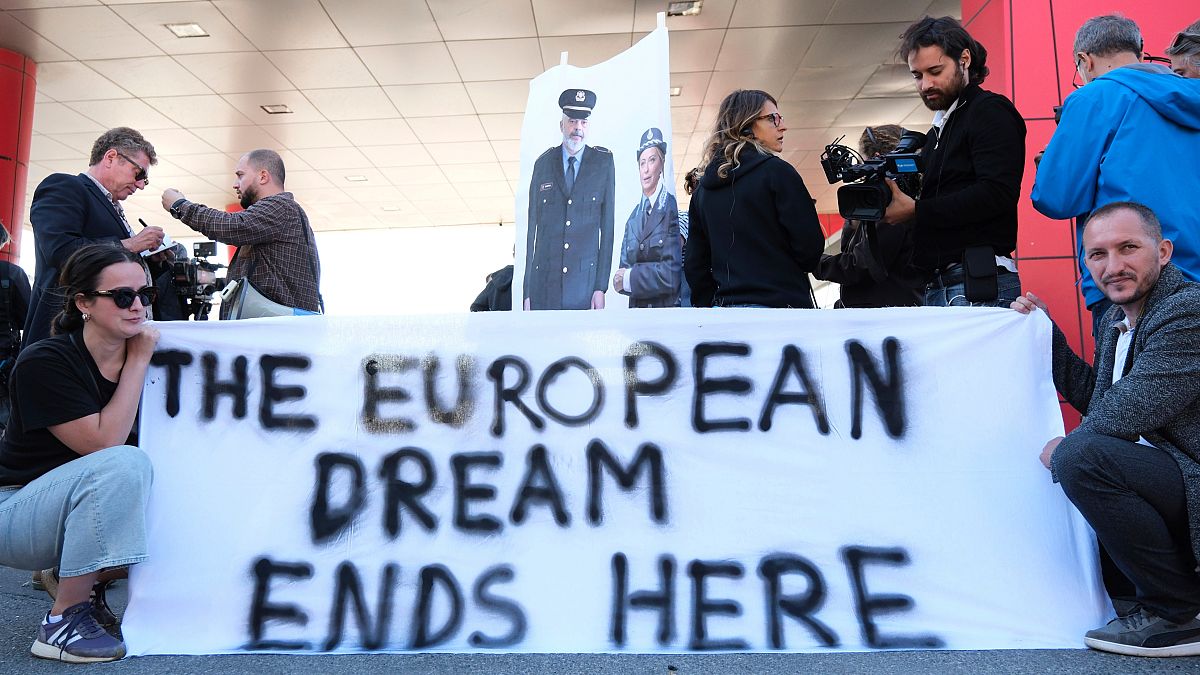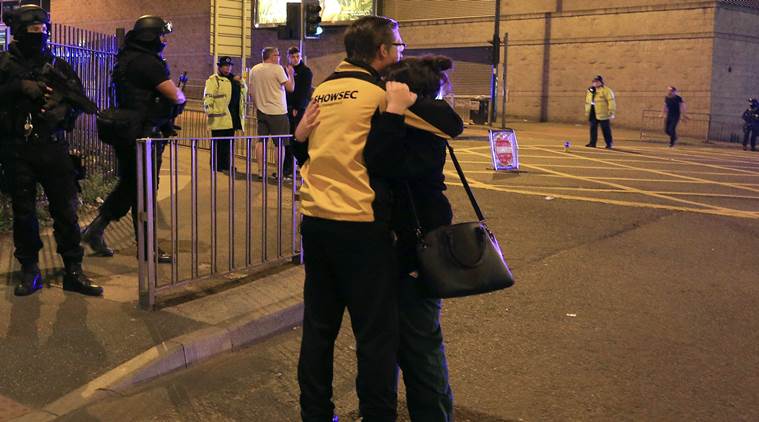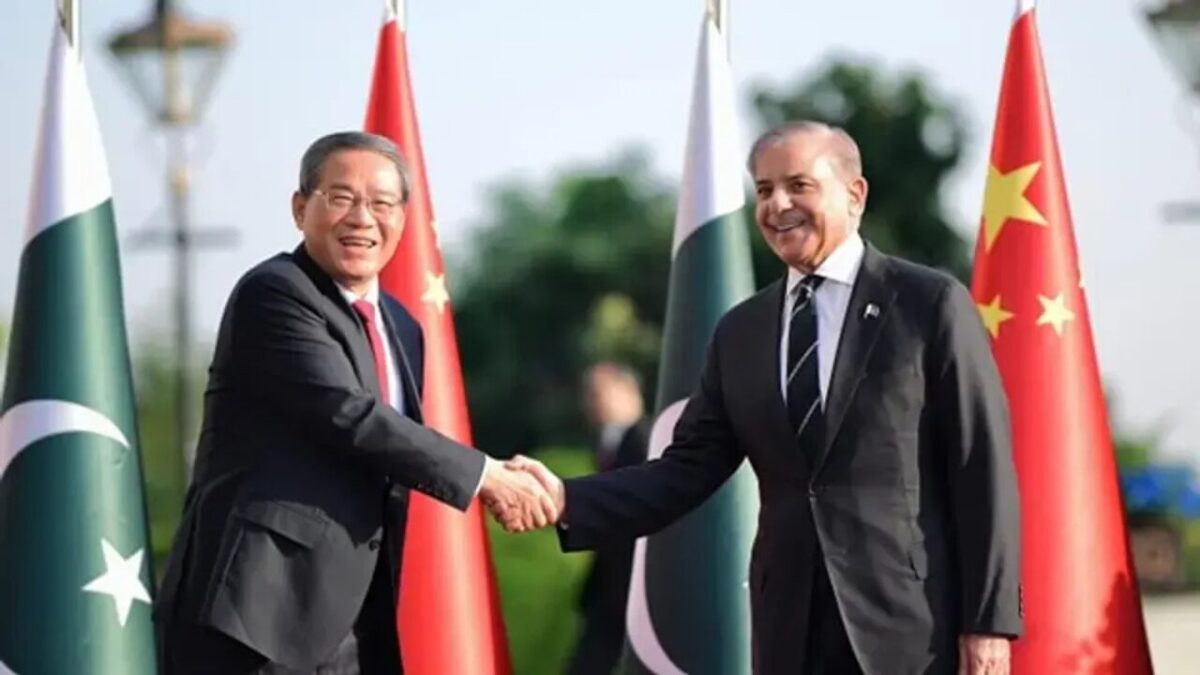Opponents of the Italy-Albania migrant deal argue it is undemocratic because the people of both countries have not been consulted.
A group of activists protested on Wednesday as the first Italian ship carrying migrants intercepted in international waters arrived in the Balkan country.
The demonstrators gathered at the entrance of the port of Shengjin, one of the two centres Italy opened in Albania last week, and displayed a banner that read, “The European dream ends here."
"It is not the first time we have protested against such a deal. We have opposed it the moment we knew about it," said one of the protesters, Edison Lika.
"This deal is against human rights; more concretely, it's about the migrants’ rights. Such a deal has not been democratic because the peoples of both countries have not been asked," he added.
Earlier on Wednesday, an Italian navy ship docked at the Albanian port of Shengjin to bring the first group of 16 male migrants — 10 from Bangladesh and six from Egypt — who were rescued at sea after departing from Libya, a ministry spokesman said.
Last week, Italy formally opened two return hub centres in Albania under Rome's jurisdiction, where it plans to process thousands of asylum-seekers outside its borders.
Only adult men would be housed in the centres, while vulnerable people such as women, children, the elderly, and those who are ill or victims of torture will be accommodated in Italy, according to Rome. Families will not be separated.
The first centre, an area in Shengjin, 66 kilometres northwest of the capital, Tirana, is used for screening newcomers, while the other centre, about 22 kilometres to its east near the former military airport in Gjader, accommodates migrants during the processing of their asylum requests.
Up to 3,000 migrants picked up by the Italian coast guard in international waters each month will be sheltered in Albania under a five-year deal signed last November by Italian Prime Minister Giorgia Meloni and her Albanian counterpart, Edi Rama.
Italy has agreed to welcome those who are granted asylum. Those whose applications are rejected face deportation directly from Albania.
The controversial agreement to outsource the housing of asylum seekers to a non-EU member country has been hailed by some countries that, like Italy, are suffering a heavy burden of refugees, but it has also been slammed by human rights groups as setting a dangerous precedent.
Meloni and her right-wing allies have long demanded that European countries share more of the migration burden.
The Italian PM has held up the Albania agreement as an innovative solution to a problem that has vexed the EU for years, despite the decline in the number of people reaching Europe along the central Mediterranean migration route from North Africa.
This year, the number of migrant arrivals to Italy has fallen by 61% in 2024 from 2023.
As of 15 October, about 54,129 migrants have arrived in Italy by sea this year, compared to 138,947 by the same date last year, according to the Italian Interior Ministry.













